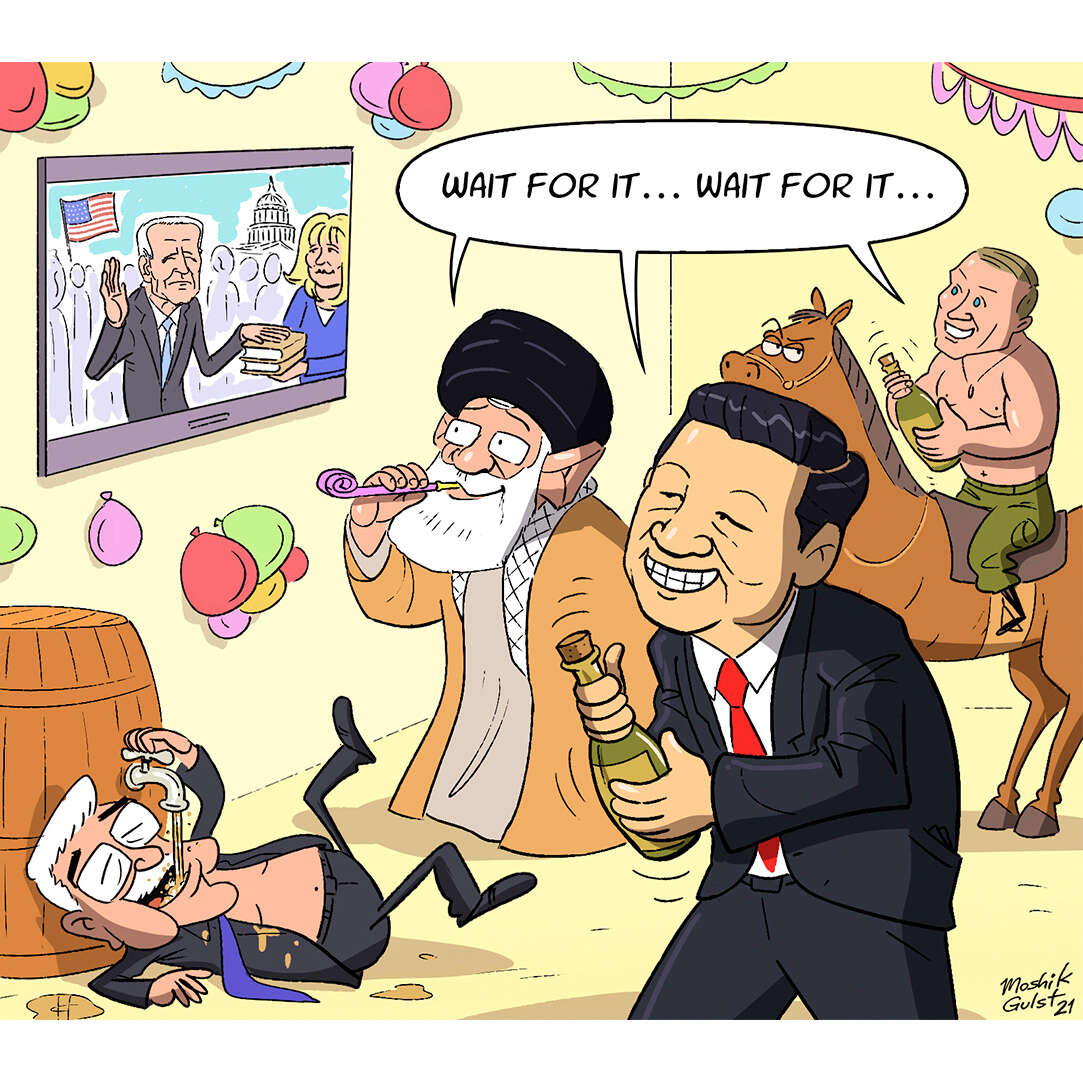Michael Oren: The Case Against the Iran Deal
The JCPOA allowed Iran to both maintain its nuclear program and revitalize its economy. Biden must make clear to Tehran that it can have one or the other, but not both. Tragically, spokespeople for the new administration are proposing to return to the JCPOA and lift sanctions, and only afterward negotiate a longer, stronger deal. Such a course has no chance of success. Even a partial lifting of sanctions would forfeit any leverage that could compel the regime to negotiate a deal that genuinely removes the danger of a nuclear Iran. At best, the regime will agree to cosmetic changes—for example, extending the sunset clauses—but not to dismantling its nuclear infrastructure. A fatally flawed deal would remain essentially intact.JINSA (PodCast): After the Abraham Accords: Relocating Israel to CENTCOM’s AOR
The Biden administration must resist pressure from members of Congress and others who are urging an unconditional return to the JCPOA. Even the deal’s fervent supporters need to recognize that its fundamental assumptions—that Iran had abandoned its quest for a military nuclear option and would moderate its behavior—have been thoroughly disproved.
At the same time, America must consult its Middle East allies about what they think a better deal would look like. Such a deal would verifiably and permanently remove Iran’s ability to develop nuclear weapons. This means not merely mothballing the nuclear infrastructure, but eliminating it. It means empowering international inspectors with unlimited and immediate access to any suspect enrichment or weaponization site. It means maintaining economic and diplomatic pressure on the regime until it truly comes clean about its undeclared nuclear activities and ceases to develop missiles capable of carrying nuclear warheads. A better deal will deny Iran the ability to commit the violations it is now committing with impunity.
Achieving these objectives will require close and candid cooperation among the United States, Israel, and concerned Arab states. Such cooperation was not possible in the negotiations leading up to the JCPOA, which America initially conducted behind the backs of its Middle Eastern partners. In the final stages, U.S. officials misled their Israeli and Arab counterparts about America’s negotiating positions. This displayed not only bad faith, but a patronizing presumption of knowing the vital security interests of the countries most threatened by Iran better than they knew those interests themselves.
The incoming administration has declared its determination to restore the trust of America’s allies, along with promoting peace and human rights. But those objectives are incompatible with renewing a deal that betrayed America’s allies, strengthened one of the world’s most repressive regimes, and empowered the Middle Eastern state most opposed to peace.
The JCPOA is also incompatible with President Biden’s long-standing commitment to Israel’s security. At a 2015 gathering celebrating Israel’s independence, then–Vice President Biden said: “Israel is absolutely essential—absolutely essential—[for the] security of Jews around the world … Imagine what it would say about humanity and the future of the 21st century if Israel were not sustained, vibrant and free.”
Reviving the JCPOA will endanger that vision, ensuring the emergence of a nuclear Iran or a desperate war to stop it. Biden is a proven friend who has shared Israel’s hopes and fears. He must prevent that nightmare.
The recent Abraham Accords have solidified a growing anti-Iran coalition in the Middle East, and the latest decision to move Israel to CENTCOM’s Area of Responsibility reflects and reinforces this changing dynamic within the region. Jonathan Ruhe, Director of Foreign Policy at JINSA’s Gemunder Center, joins Erielle to discuss the importance of this relocation, the reasoning behind the decision, and what we might expect from future administrations when it comes to Israel’s role within CENTCOM.
Khaled Abu Toameh: Palestinians: Victims of an Arab Country
Like most Arab countries, Syria denies citizenship to Palestinians. Children born in Syria to fathers who are Palestinian nationals are considered Palestinians, not Syrian nationals.PMW: American values are incompatible with funding UNRWA and the PA - watch lecture by Itamar Marcus
Palestinian leaders see no evil or wrong-doing when their people are being killed, injured, displaced, arrested and tortured in an Arab country. The attention of these leaders is solely focused on Israel, which they denounce day and night not only for what it does, but also for what it does not do.
On January 9, Abbas entered the 17th year of his four-year term. He is again talking about his desire to hold new elections. This charade is played at least once or twice a year so that people will believe that he really wants elections.
The Palestinians do not need new elections. They need new leaders who will guide them out from their longstanding morass into a future of promise and peace.
Itamar Marcus explains why funding UNRWA is the international communities’ worst investment ever: because “UNRWA is just growing refugees,” in his recent webinar/lecture to the DC-based EMET organization.
During the 12 years of the last two American administrations, Palestinian refugees have grown by a million from 4.6 million - 5.6 million, according to reports by UNWRA. Billions of American dollars during this period were invested – presumably to solve the refugee problem – but instead UNRWA used the money to literally increase the refugee problem.
Funding of UNRWA should be conditional upon saving 300,000 people a year by removing them from refugee lists and giving them a life and a future. Instead, UNRWA abuses nearly 100,000 additional people each year, by condemning them to be refugees. Funding UNRWA is supporting the abuse of human beings for political purposes.
Funding the PA likewise contradicts fundamental American values. The PA uses its money to reward terrorists, glorify terrorists, fund terror organizations, disseminate vicious Antisemitism, celebrate the murder of Israelis and Jews, and deny Israel’s right to exist.
There is no logical reason why any US administration would want to support entities so diametrically opposed to American values.


































.jpg)





